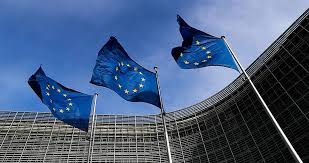The European Union responds to Trump's tariffs with countermeasures that could reach up to $28 billion.

European Union countries are moving towards adopting a joint response in the near future to the customs duties announced by U.S. President Donald Trump. It is expected that member states will agree on a package of retaliatory measures targeting American products worth $28 billion.
With this step, the European Union joins China and Canada in imposing customs tariffs on U.S. imports, escalating the risk of a global trade war that could lead to higher prices for millions of consumers and a decline in global economic growth.
This is in response to U.S. tariffs imposing a 25% tax on steel, aluminum, cars, and a 20% tax on most other goods.
The new tariffs cover around 70% of the European Union's exports to the United States, valued at €532 billion ($585 billion) last year, with the possibility of expanding to include copper, pharmaceuticals, semiconductors, and wood.
The European Commission, responsible for coordinating the Union's trade, is expected to propose a list of American products to impose additional tariffs on as a direct response to Trump's actions, rather than immediately resorting to comprehensive measures.
The European Union, heavily reliant on free trade, aims to gain broad support for any potential response to continue pressuring the U.S. administration to return to the negotiation table.
In this context, Luxembourg will host the first political meeting at the Union level since Trump's announcement on Monday, April 7th, where trade ministers of member states will discuss the economic implications and available options for response.
European diplomats have clarified that the primary goal of the meeting is to formulate a unified position confirming the Union's readiness to negotiate with Washington to lift the tariffs, while keeping retaliatory measures as an option if diplomatic solutions fail.